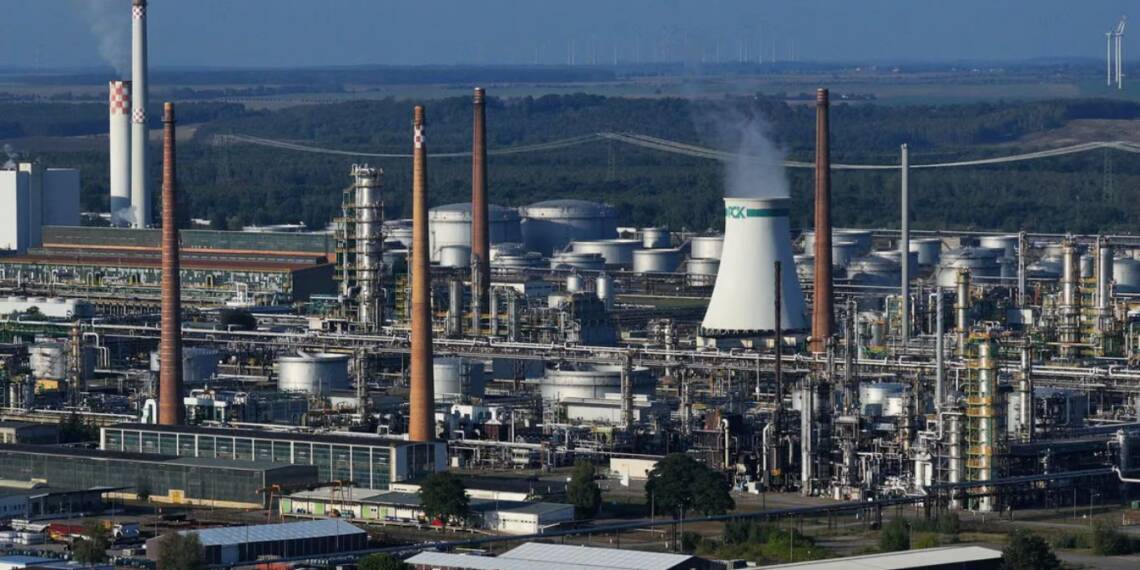No Russian oil has been delivered via the Druzhba pipeline to the PCK, a refinery in Germany in more than two years because of sanctions levied against Moscow following its full-scale invasion of Ukraine.
But with the Schwedt plant, near the Polish border, struggling to handle alternative raw materials, voices are growing louder for a return to the old ways.
“Many people here, especially in Schwedt, see the idea of oil once again flowing through the pipeline as both conceivable and desirable,” city council leader Hans-Joachim Hoeppner told AFP.
Switching between different types of oil has made the plant, which employs about 1,200 people, less “effective,” said Hoeppner of the centre-right CDU. So far, officials in Berlin have firmly rejected any suggestion of reopening the European market to Russian oil.
But the easing of US-Russia tensions since President Donald Trump returned to office has raised hopes for a potential Ukraine ceasefire deal. “If relations with Russia are shifting… I believe Russian oil could indeed return,” said Hoeppner. Sanctions imposed by Germany stopped Russian crude deliveries via the Druzhba (“friendship”) pipeline at the start of 2023.
Since then, Schwedt’s refinery has relied on substitute oil from Rostock, plus smaller volumes via Gdansk and Kazakhstan.
The change has left the plant running at about 80% capacity and deep “in the red,” said works council head Danny Ruthenburg.
A “solution” is urgently needed to secure the refinery’s future and local jobs, Ruthenburg stressed — whether via more oil from Rostock or through Druzhba once the Ukraine war ends.
Last month, Brandenburg’s Social Democrat premier Dietmar Woidke hinted at openness to Russian oil returning.
“I would be glad if normal trade ties with Russia were restored,” Woidke said, calling the refinery “hugely important” for the regional economy.
Others have spoken more directly.
“Lift the sanctions — they hurt us more than Russia,” said Peggy Lindemann, works council member and city councillor for the far-right AfD.
After Russian oil was cut off, Berlin pledged to shift the plant toward hydrogen production — but the plan stalled, leaving the refinery in limbo.
Further complicating matters, the PCK refinery remains majority-owned by Rosneft Deutschland, a local unit of the Russian oil giant, though managed by a German government-appointed trustee. Berlin extended its control over the refinery in March and again insisted Rosneft must sell its stake. But finding a buyer will remain difficult as long as sanctions persist.
Meanwhile, talks have surfaced over reviving another stalled Russian fossil fuel project — the Nord Stream gas pipeline. In March, Russian Foreign Minister Sergei Lavrov said US-Russia discussions had touched on the pipelines, though Berlin remains unlikely to approve.
Schwedt has also reportedly come up in U.S.-Russia talks, according to German outlet Correctiv. “In principle, that would be a solution… it would bring security,” Hoeppner said. “I wouldn’t object.”








